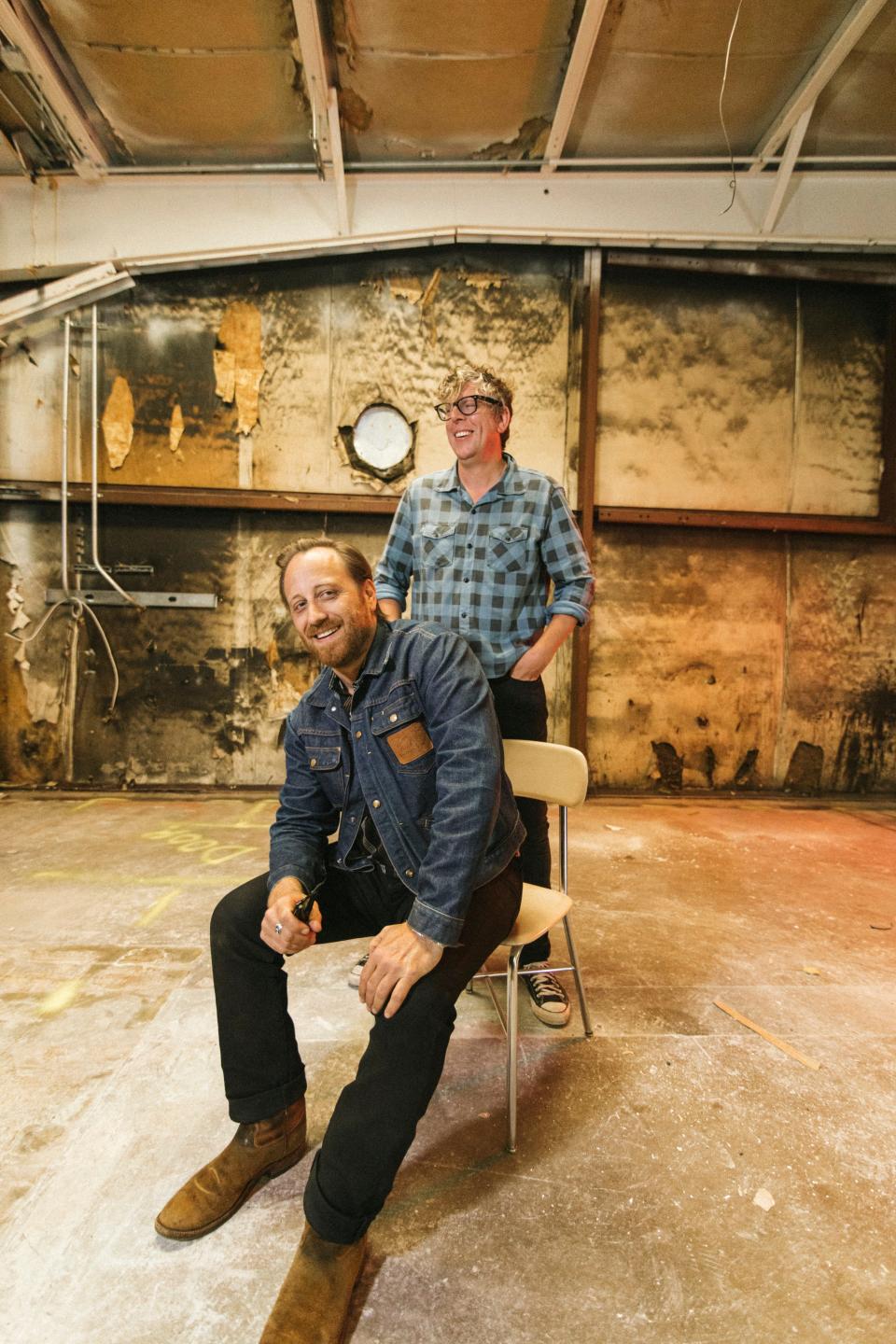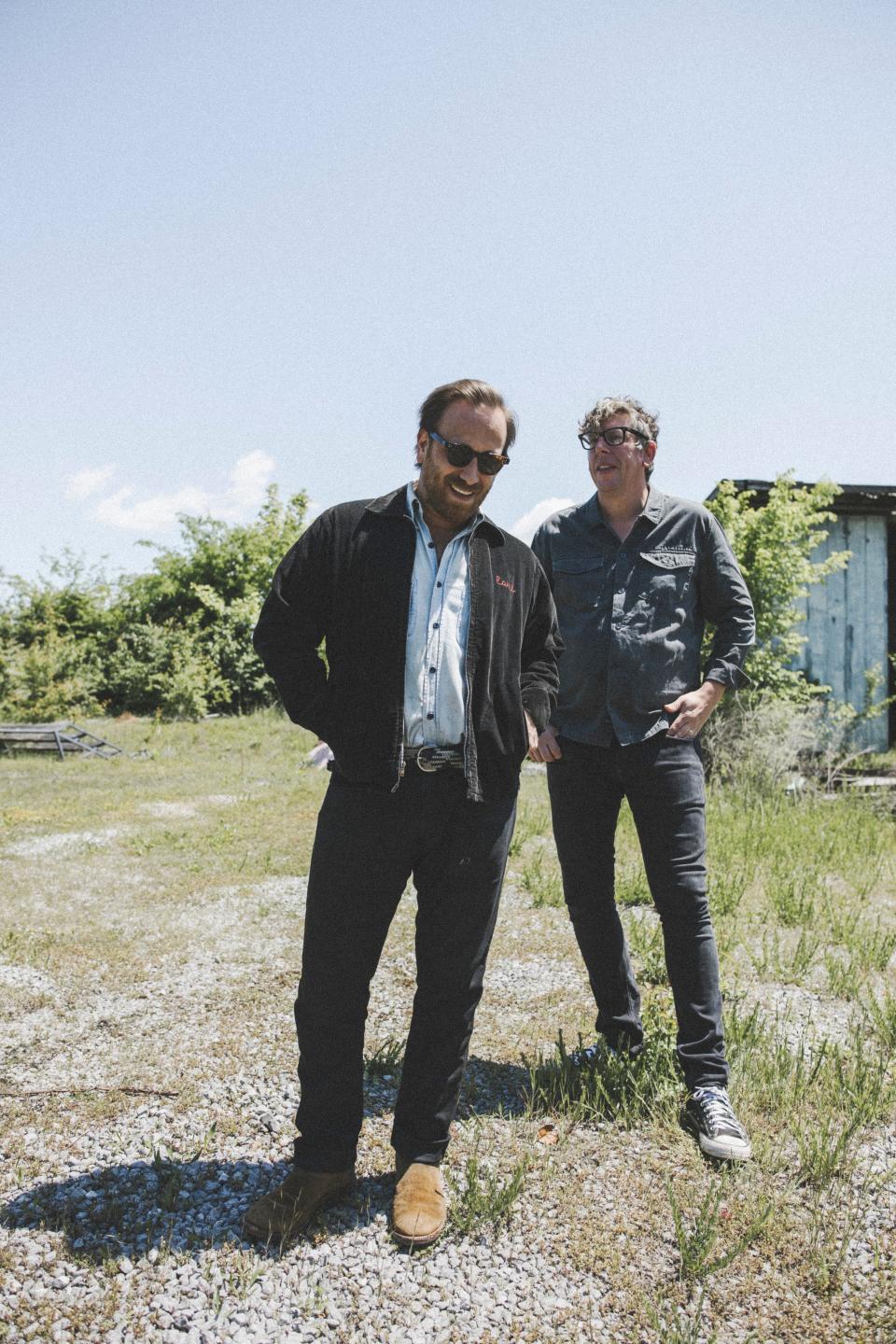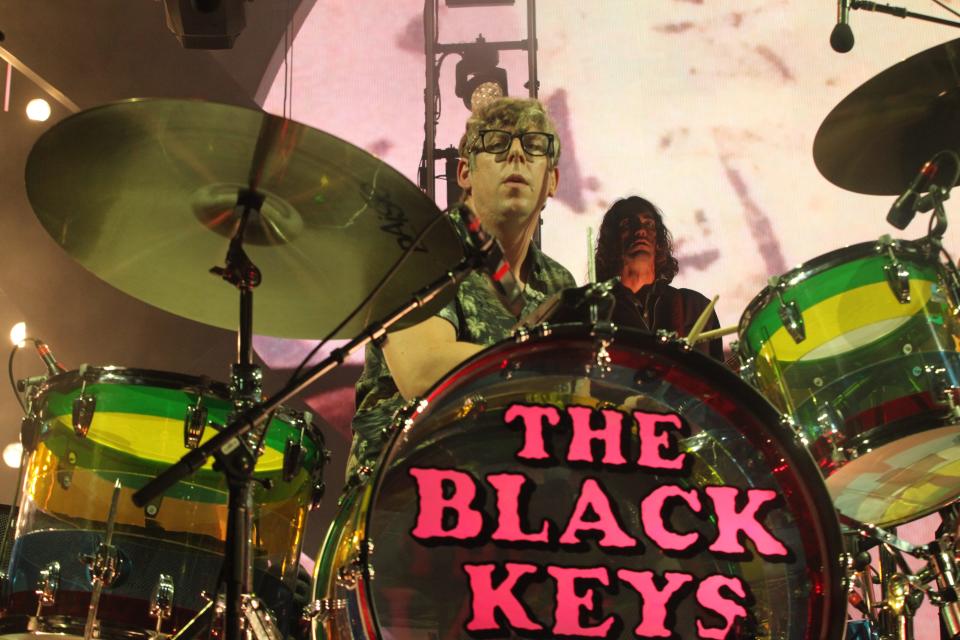The Black Keys rediscover their blues roots in 10th studio album, 'Delta Kream'

In their earliest, humblest days – back when they were working out of a basement in Akron, Ohio, with two microphones and an eight-track tape recorder – The Black Keys were already writing phenomenal original songs.
Their 2002 debut, “The Big Come Up,” had a bunch of them: “Your Man,” “Heavy Soul” and “Countdown” are all classics cherished by the rock duo’s longtime fans.
But when frontman Dan Auerbach and drummer Patrick Carney were sequencing “Come Up,” they began the album by tipping their hat to two legendary Mississippi bluesmen. Opener “Busted” adopted a lick from R.L. Burnside’s “Skinny Woman,” and was followed by a cover of “Do The Rump” by Junior Kimbrough.
In retrospect, it seems like a deliberate move: an immediate acknowledgement of two giants that undeniably inspired the band’s scrappy blues-rock sound.
In fact, it was pure happenstance – par for the course with a band that only formed because their respective little brothers urged them to get together and jam.
“We were just flying by the seat of our pants,” Auerbach says.
“We were shocked when we got a record deal,” Carney adds. “And we've been constantly shocked the whole 20 years we've been a band, really.”
Now – two decades, five Grammys and a handful of platinum and gold records later – The Black Keys are once again paying tribute to Burnside, Kimbrough and other blues heroes. This time, it’s with a bit more focus and purpose.
Their just-released 10th studio album, “Delta Kream,” is a pure salute to Mississippi hill country blues. The duo recorded its 11 covers over two days at Auerbach’s Easy Eye Sound studio in Nashville.
All of the songs were captured live in no more than two takes, alongside guitarist Kenny Brown and bassist Eric Deaton – accomplished Mississippi musicians who played with Burnside and Kimbrough before their deaths in 2005 and 1998, respectively.
The results might be more polished than what they cooked up 20 years ago, but with “Kream,” the Black Keys have successfully tapped back into the thrilling immediacy of their earliest, basement-born work. It has earned them some of their kindest reviews this decade, and the band’s diehards are overwhelmingly applauding this turn back to their roots.
“It's definitely resonating with old fans,” Auerbach says. “And the reason is because Junior and R.L. were so influential, that us covering them sounds like old us. If it weren't for these musicians that we're covering on this record, we just wouldn't be here. I mean, this was the concentric circle for Pat and I. We came from two totally different worlds and met in the middle, and it was hill country blues.”
'Those calls rarely happen'
Those differences – Auerbach starting as a blues guitar acolyte, Carney a sardonic indie-rock geek – made for perfect alchemy during the band’s rise, which took a good decade before their 2010 mainstream breakthrough, “Brothers.”

But in the wake of success, the two seemed to be pulled, inevitably, in different directions. After wrapping up tour for their 2014 album, “Turn Blue,” they went on hiatus, and didn’t see each other for more than a year. They finally reconvened for 2019’s “Let’s Rock,” and spent the year playing arenas across the U.S.
They’d just returned to Nashville (their home base since 2010) when Carney got an unexpected phone call. It was Auerbach, once again asking him to come over and jam.
“20 years into the band,” Carney says, “those calls rarely happen.”
Auerbach had been holed up at his studio with Brown and Deaton, wrapping up work on a new album for blues veteran Robert Finley.
“I just knew it would be fun if Pat came to the studio,” he says.
Once they were all in the same room, the musicians simply started pulling out old blues licks, working backwards to remember which songs they were from: “Crawling Kingsnake,” popularized by John Lee Hooker, or Burnside’s rendition of the traditional “Poor Boy a Long Ways From Home.”

They knocked out nine songs during that session – Carney had to break to tuck his young son into bed – and topped it off with two more the following day.
“It really is the first Keys record that's cut like a traditional rock and roll record would be,” Carney says.
The 'melting pot'
As a teenager, Carney made his way to hill country blues via indie rockers Jon Spencer Blues Explosion, who made an alum with Burnside in 1996. Auerbach stumbled upon a compilation of recordings by Mississippi Fred McDowell around that same time, and soon found his way to Fat Possum Records, which released late, acclaimed records by Burnside and Kimbrough.
“Their whole ethos and the rawness of all the recording that they did – and the fact that I could go to the drive to Cleveland from Akron and go see R.L. Burnside – that just got me completely hooked,” he says.
Though it was recorded in 2019, “Delta Kream” arrives in the shadow of a historic year. The deaths of George Floyd, Breonna Taylor and others have sparked countless conversations on race in America – and some white musicians have sought to acknowledge the cultural and racial roots of the art they make.

“Our band is essentially a giant tribute to Black music,” Carney says. “We've made hip-hop records, we've made blues records, but we also wouldn't be here if it weren't for everybody that was inspired by those guys.”
“I think what we like to do is treasure what's so beautiful about the melting pot,” Auerbach says. “Because that's usually what it comes down to.”
That was the scene that greeted them last month when they made the trek to Bentonia, Mississippi, to make a music video at the Blue Front Café, a legendary “juke joint” owned by blues musician Jimmy “Duck” Holmes.
“It was like being in another reality,” Auerbach says. “People were all hanging out on the street: Black and white, young and old, and everybody's having a good time.”

On top of paying tribute with “Kream,” the band has also partnered with Mississippi’s tourism board to commission two new markers along its Mississippi Blues Trail: one for Burnside, the other for Kimbrough.
“They always talk about the blues revival of the ’60s with Son House, and I feel like I was alive during a hill country blues revival,” Auerbach says. “I feel so lucky to have been around when those guys were making records. … They made blues music feel different. Anything we can do to honor those guys, we want to do.”
This article originally appeared on Nashville Tennessean: The Black Keys rediscover their blues roots, 20 years later

 Yahoo Finance
Yahoo Finance 